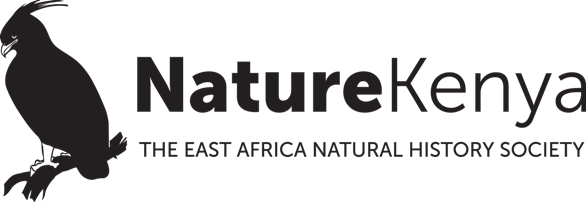February 2022 was a month for wetlands. The World Wetlands Day was celebrated on 2.2.22. Nature Kenya joined the National Environment Management Authority (NEMA) to raise the profile of Ondiri Swamp, the source of Athi River. Athi River water is said to be contaminated with metals, pharmaceuticals and human waste rendering the water unfit for use by people, livestock and wildlife downstream. The awareness raising events at Ondiri Swamp included a bird walk led by Richard Kipng’eno and Peter Muriithi of Nature Kenya.
Nature Kenya Site Support Groups celebrated at their respective sites in style. The Yala Ecosystem Site Support Group collaborated with the Siaya County Government to raise awareness for the sustainable management of Yala Swamp – Kenya’s largest freshwater wetland. The wetland faces a myriad threats; over-exploitation of its natural resources is one major threat. Nature Kenya worked with local communities and the Siaya and Busia county governments to develop a Land Use Plan to balance the various interests within the wetland. Nature Kenya, through funding from the Darwin Initiative, convinced the Busia County Members of the County Assembly to approve the Land Use Plan to ensure development overall is sustainable and compatible with biodiversity protection. Nature Kenya also mobilized communities in Yala, who have submitted requests to Kenya Wildlife Service and the Siaya County Government to consider the listing of Yala Swamp under the Ramsar Convention.
In the Tana River Delta, the Tana Delta Conservation Network (TDCN) and the County Governments of Tana River and Lamu brought together local people and decision makers to raise the profile of Tana Delta – a vast seasonal wetland complex on the Kenyan coast of national and global importance. Nature Kenya is currently involved in the implementation of the Tana River Delta Land Use Plan (LUP). The LUP’s implementation process seeks to ensure that biodiversity needs are considered in the planning of development activities within the Delta. As part of the implementation of the Land Use Plan, Nature Kenya is supporting the designation of Indigenous and Community Conserved Areas (ICCAs) to conserve important cultural values and biodiversity and also promote ecotourism. Nature Kenya is also spearheading Green Value Chains and forest landscape restoration in the Delta under the Tana River Delta Restoration Initiative funded by the Global Environment Facility (GEF) through the United Nations Environment Programme (UNEP). In February, Tana River County gazetted the Green Heart Committee, a new institution that will oversee sustainable land management for nature and people in the Delta.
Many businesses have also recognized the need for ‘Green Recovery’. Kenya Breweries Limited, for instance, joined Nature Kenya to raise awareness for wetland conservation through an article published in the Sunday Standard under the name of Paul Matiku. Kenya Breweries is leading business efforts to restore Mt Kenya forests to enhance water quantity and quality. Coca-Cola Beverages Africa – Kenya has joined this tree planting effort and more partners are invited to join.
At other sites, Site Support Groups celebrated the World Wetlands Day in their own style. Waterfowl counts were conducted by Nature Bogoria, Friends of Dunga Swamp, Lake Elmenteita Ecosystem Community Based Organization (LECBO). The Kijabe Environment Volunteers (KENVO) counted birds at Manguo swamp. Data collected from the counts will be collated, analyzed, published and used to inform conservation actions.
In Dakatcha, members of the Dakatcha Woodland Conservation Group conducted detailed monitoring for the Kilifi (Clarke’s) Weaver. The SSG members observed around 300 weavers flying among Brachystegia trees near Gandi wetland.
On the policy front, we sincerely thank members for signing the Nature Kenya petition against the proposed amendment to the Forest Act. Nature Kenya coordinated Site Support Groups and Community Forest Associations who submitted their petitions against the proposed amendment. If the law is amended as proposed, the Kenya Forest Service will have no say in alteration of forest boundaries. Under the current law, any change of forest boundary has to be advised by the Kenya Forest Service based on an Environmental Impact Assessment. If you know someone who knows an influential person, please ask them to say NO!
In March 2022, membership activities will continue in adherence to the Covid-19 protocols as follows:
- A members’ talk titled ‘The role of forensic entomology in the criminal justice system in Kenya’ will take place virtually on 18th of March.
- The ‘Lungs for Kenya’ charity Golf tournament is scheduled to take place on 25th March 2022 at the Karen Country Club. Book your slot to participate by contacting Gloria Waswa Membership and Marketing Manager at nkmembership@naturekenya.org
- Wednesday Morning Birdwalks and Third Sunday Birdwatch in Nairobi and Thursday afternoon and Fourth Saturday bird walks in Malindi continue with caution. See back page for details.
- The Nature Kenya Sales and Membership office will be open to members on weekdays, 8 a.m. to 5 p.m. Please wear masks, sanitize and keep social distance.
- Online membership functions to continue: membership can be renewed online http://naturekenya.org/support/membership/ or via M-Pesa. Books, honey, etc. may be purchased online or with M-Pesa (Paybill 100300, account “books” or “honey”) and collected from the membership office between 8 a.m. and 4 p.m.
- Members will continue to receive an electronic version of the Nature Net. A hard copy of Nature Net can be posted or collected from the office by request to nkmembership@naturekenya.org or telephone 0726 134029.
- The Nature Kenya conservation office remains closed. Physical conservation meetings in Nairobi and other Covid hotspots to be avoided unless absolutely critical.
- The EANHS/NMK Library is open. Museum galleries and sites are open to the public under Ministry of Health guidelines.
For clarifications or to report your observations on species and sites, kindly contact us through email: office@naturekenya.org or telephone: 020 3537568, 0780 149200, 0751 624312, 0771 343138
Dr Paul Matiku,
Executive Director, Nature Kenya – the East Africa Natural History Society
